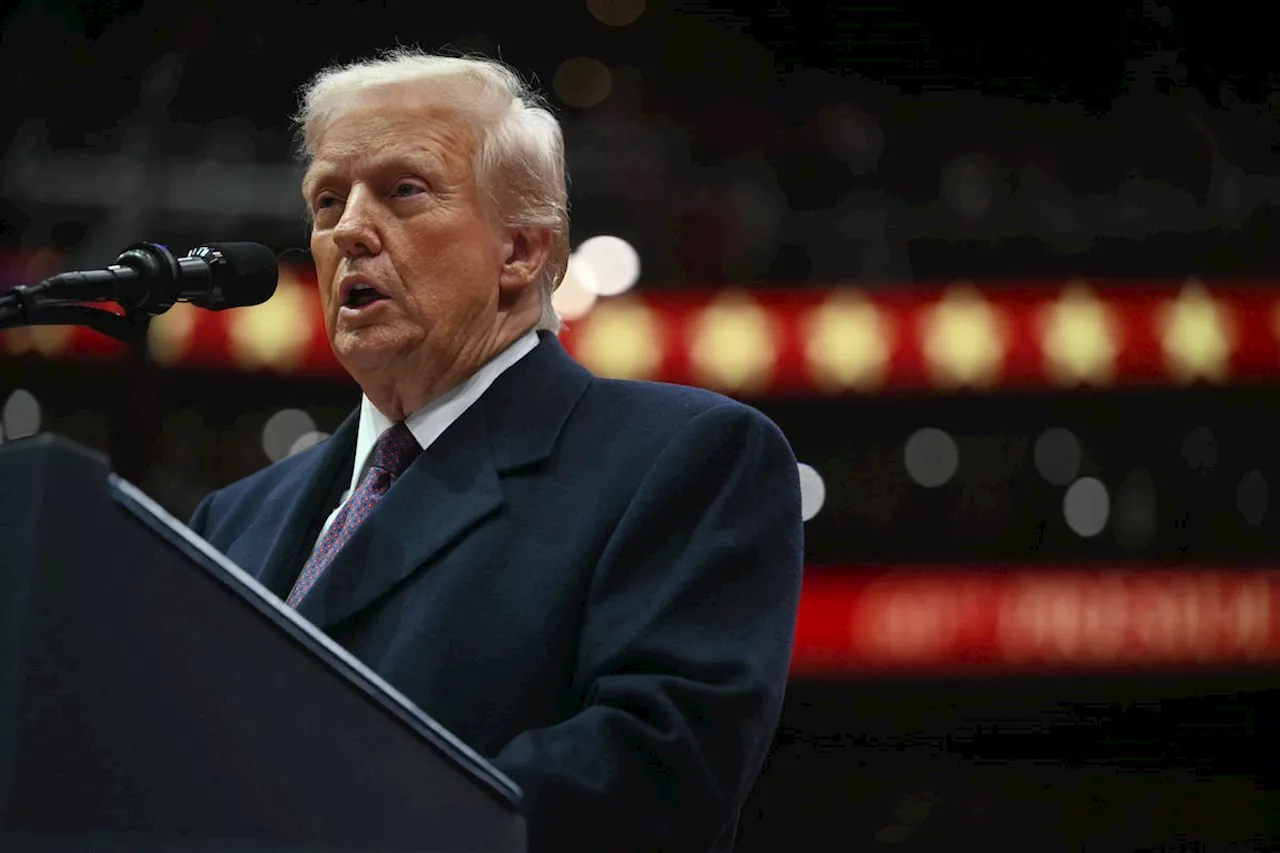President Trump's temporary delay on tariffs against Canadian imports offers a window for Canada to negotiate a new trade deal that benefits both countries. Analyzing the political landscape and potential strategies for Canada to navigate this trade war.
The news of a temporary delay in U.S. tariffs on Canadian imports came as a pleasant surprise, at least for a few hours. The loonie's value popped on the news, as did energy, pipeline, and railway stocks – sectors that had already priced in a profit-killing trade war .
By evening, when President Trump said he was still committed to enacting the tariffs by next month, it was clear the President had not come to the realization that taxing imports from Canada, China, and Mexico would hurt American consumers. He made his intentions clear: “Instead of taxing our citizens to enrich other countries, we will tariff and tax foreign countries to enrich our citizens.” His decision to delay his promised levies is part of the incoming administration’s great game goal to limit China’s economic clout by striking a deal. Mr. Trump clearly believes tariffs will boost U.S. manufacturing and fill government coffers. A trade war is coming. The President simply gave Canadian leaders a little more time to figure out their responses to an increasingly hostile customer who buys the bulk of what our businesses produce. Mr. Trump’s election has renewed Canadian CEOs’ calls for the provinces to get rid of domestic trade barriers that are, in their own way, as onerous as U.S. tariffs, as Globe and Mail international correspondent Nathan VanderKlippe wrote on the weekend. Matching Washington tariff-for-tariff is a weak negotiating tactic for the federal government. We need access to their market far more than they need us – and Mr. Trump knows it. What’s been proven to work with this art-of-the-deal President are agreements that give him a high-profile win while still benefiting Canada. For example, the current free-trade agreement between Canada, the U.S., and Mexico – negotiated by Canadian politicians – Reworking a grand, continental trade accord would allow negotiators from all three countries to preserve trade in key sectors such as energy and embrace infrastructure investments. In a report released Monday, analyst Greg Pardy at RBC Capital Markets said: “Trump’s vocal support for reviving Keystone XL and vow to keep a lid on gasoline prices are so incongruent with the tariff drumbeat that a new bilateral trade deal may not be too distant.” As Mr. Trump looks for victories, Canadian politicians may find the cover they need to reconsider policies on what have traditionally been sacred cows. For example, Canada’s dairy farmers are well served by trade barriers, as Mr. Trump noted during campaign stops in Wisconsin, a key swing state. It’s less clear Canadian consumers are well served by restrictions on U.S. milk imports. The federal Liberals, or a pro-competition government led by the Conservative Party’s Pierre Poilievre, could take previously unthinkable steps to open up agriculture. The vibrant Canadian wine industry is a testament to what happens when politicians remove protectionist barriers. Rumours of the sector’s demise after the first Canada-U.S. free-trade agreement was signed, in 1988, proved vastly exaggerated. Vintners responded by replacing plonk with decent wines for all occasions. If there’s a win for Canadian consumers in allowing U.S. companies more freedom to compete in other protected industries – airlines, banking or telecommunications spring to mind – Canadian politicians have an opportunity and an obligation to revisit long-standing policies. The same goes for relaxing foreign ownership restrictions. Mr. Trump is a relatively easy-to-read opponent. History shows he values flashy wins as much or more than putting in the work needed to achieve hard-to-articulate strategic goals. Politicians in China, Mexico, and Canada know what they are up against. There’s an opportunity to use the President’s Terminator-like determination to win a trade war
TRADE WAR CANADA UNITED STATES TARIFFS NAFTA ECONOMY POLITICS
Canada Latest News, Canada Headlines
Similar News:You can also read news stories similar to this one that we have collected from other news sources.
 Rob Shaw: Eby leaves B.C. families famished for relief as trade war loomsPremier parks $1K grocery rebate with no timeline for return
Rob Shaw: Eby leaves B.C. families famished for relief as trade war loomsPremier parks $1K grocery rebate with no timeline for return
Read more »
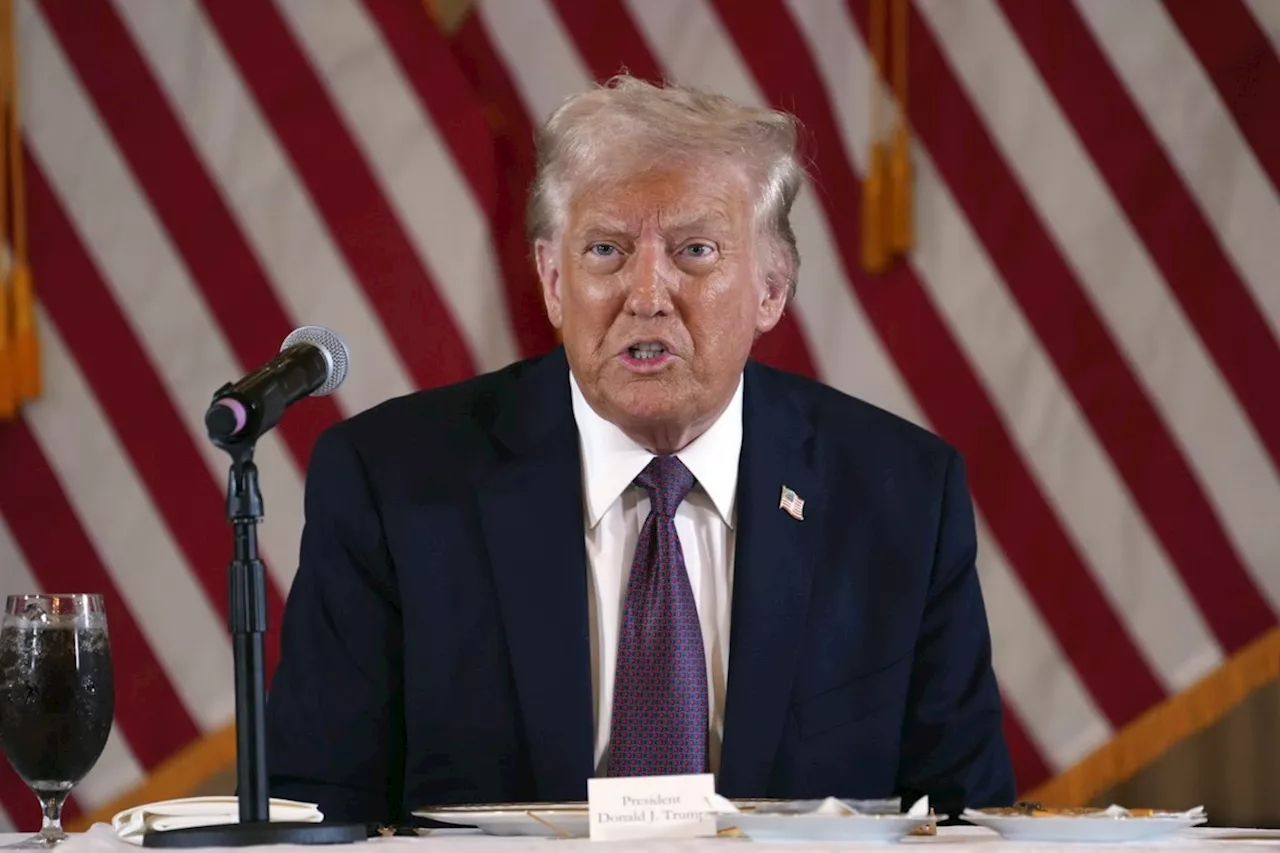 Trump's Tariff Threat Looms Over Canada-U.S.-Mexico Trade PactPresident-elect Donald Trump's pledge to impose 25% tariffs on Canadian and Mexican imports has raised concerns about the future of the Canada-U.S.-Mexico Agreement (CUSMA). Experts predict Trump will likely review the agreement sooner than its scheduled 2026 deadline, potentially disrupting trade relations between the three countries.
Trump's Tariff Threat Looms Over Canada-U.S.-Mexico Trade PactPresident-elect Donald Trump's pledge to impose 25% tariffs on Canadian and Mexican imports has raised concerns about the future of the Canada-U.S.-Mexico Agreement (CUSMA). Experts predict Trump will likely review the agreement sooner than its scheduled 2026 deadline, potentially disrupting trade relations between the three countries.
Read more »
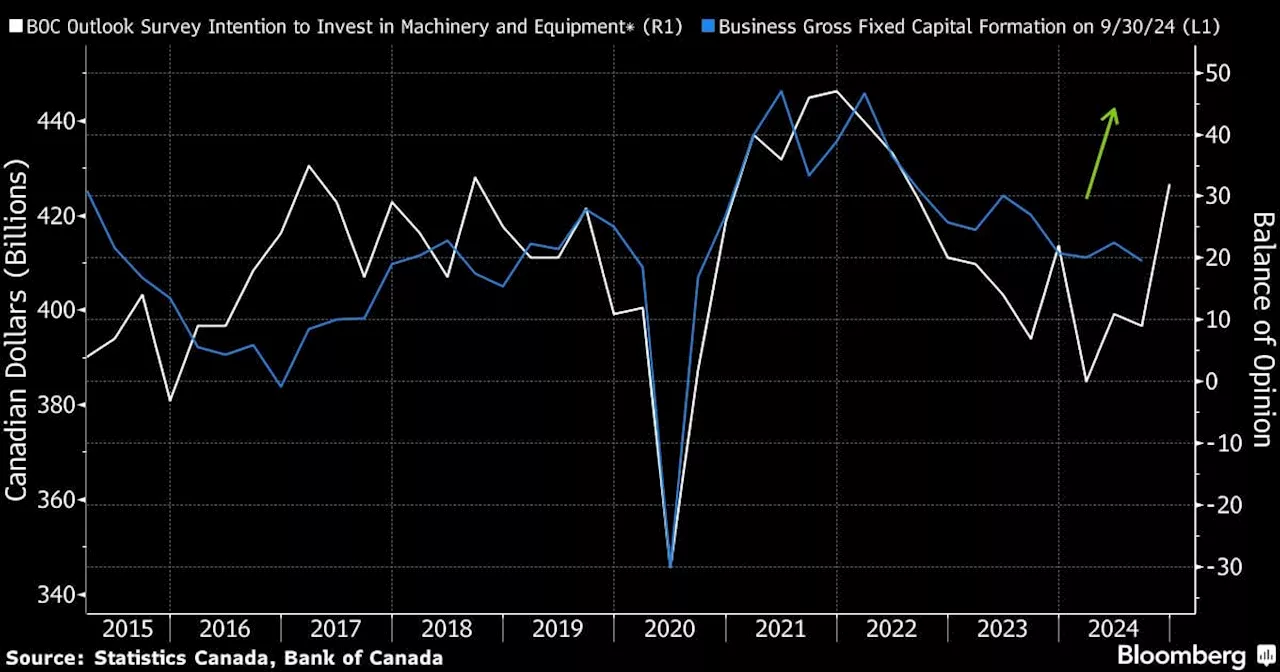 Canada's Economy Shows Signs of Recovery, But Trade Uncertainty LoomsDespite emerging optimism and tangible improvements in economic activity, businesses and consumers in Canada are facing uncertainty due to potential trade policies from the new US administration. The Bank of Canada's survey reveals a cautiously positive outlook, but the threat of tariffs casts a shadow on the country's economic stability.
Canada's Economy Shows Signs of Recovery, But Trade Uncertainty LoomsDespite emerging optimism and tangible improvements in economic activity, businesses and consumers in Canada are facing uncertainty due to potential trade policies from the new US administration. The Bank of Canada's survey reveals a cautiously positive outlook, but the threat of tariffs casts a shadow on the country's economic stability.
Read more »
 Canada's Trade Surplus with US Grows Amidst Trump's Trade RhetoricDespite a ninth consecutive trade deficit, Canada's surplus with the US expanded in November. This comes as incoming US President Donald Trump has repeatedly criticized Canada's trade policies and threatened tariffs.
Canada's Trade Surplus with US Grows Amidst Trump's Trade RhetoricDespite a ninth consecutive trade deficit, Canada's surplus with the US expanded in November. This comes as incoming US President Donald Trump has repeatedly criticized Canada's trade policies and threatened tariffs.
Read more »
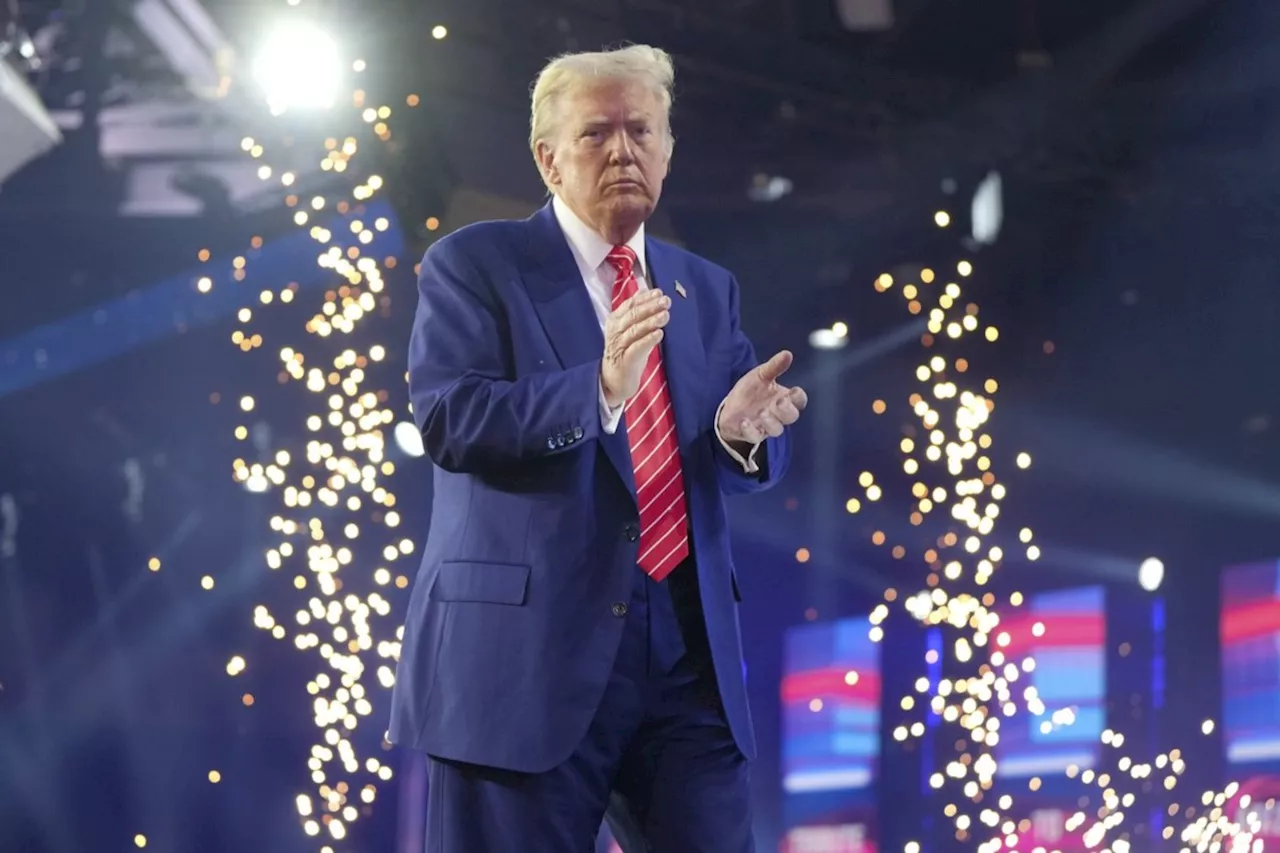 Trump's Canada Jokes Ignored by Officials Amid Trade War ThreatsDespite continued jabs from Donald Trump and his supporters about annexing Canada, Canadian officials are focusing on the more serious threat of proposed tariffs. Trump's rhetoric is seen as unserious and a way to appeal to his base.
Trump's Canada Jokes Ignored by Officials Amid Trade War ThreatsDespite continued jabs from Donald Trump and his supporters about annexing Canada, Canadian officials are focusing on the more serious threat of proposed tariffs. Trump's rhetoric is seen as unserious and a way to appeal to his base.
Read more »
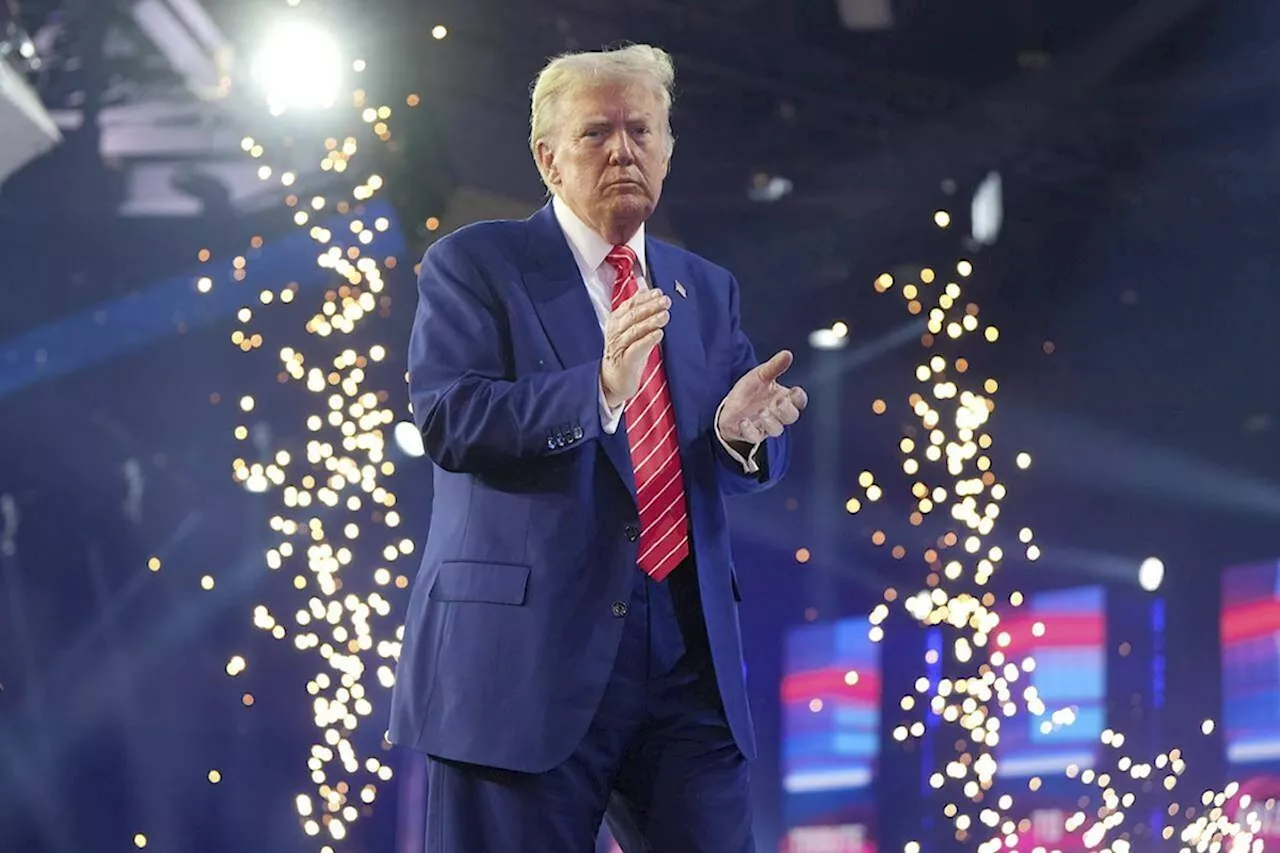 Expert calls Trump taunts ‘churlish’, urges Canada to focus on coming trade warCarleton professor said Trump posts play well to his supporters, without being seen as a real threat
Expert calls Trump taunts ‘churlish’, urges Canada to focus on coming trade warCarleton professor said Trump posts play well to his supporters, without being seen as a real threat
Read more »
